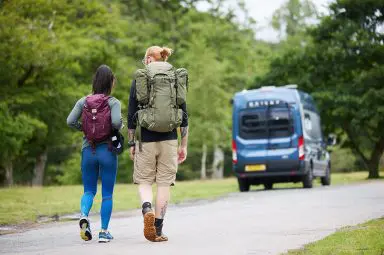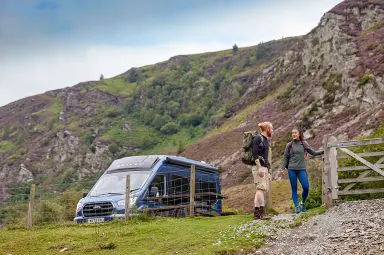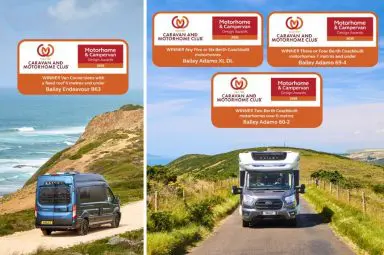Motorhome, Campervan and Caravan Off-Grid Tips and Tricks
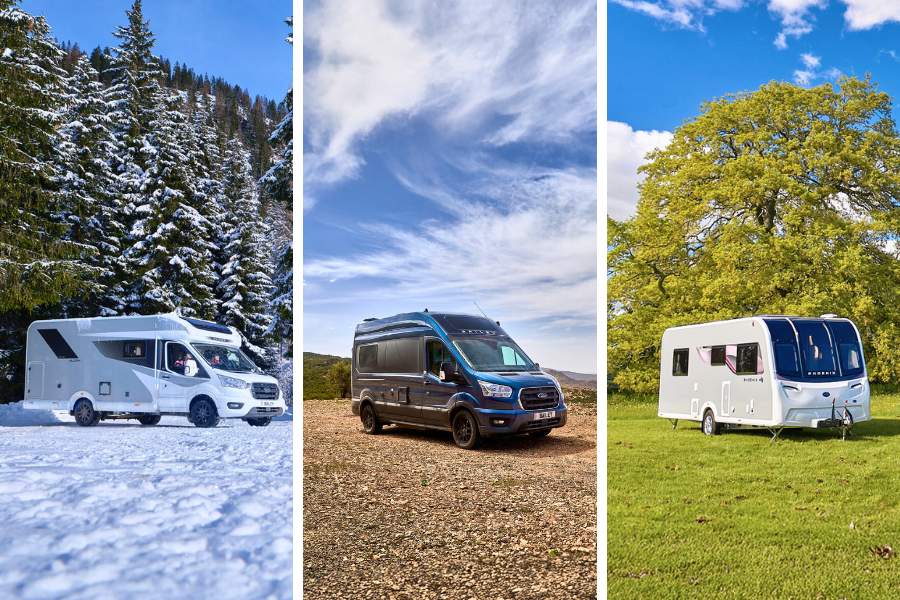
Going off-grid can feel a bit overwhelming at first, but to be honest, not much really changes. The only two key differences are the lack of an electric hook-up and on-site facilities. In this blog, I’ll provide some tips and tricks for those considering off-grid camping.
- Gas
- Leisure Battery
- Packing Essentials
- 12V Equipment
- On-Site Setup
- During your Holiday
- What if it goes Wrong?
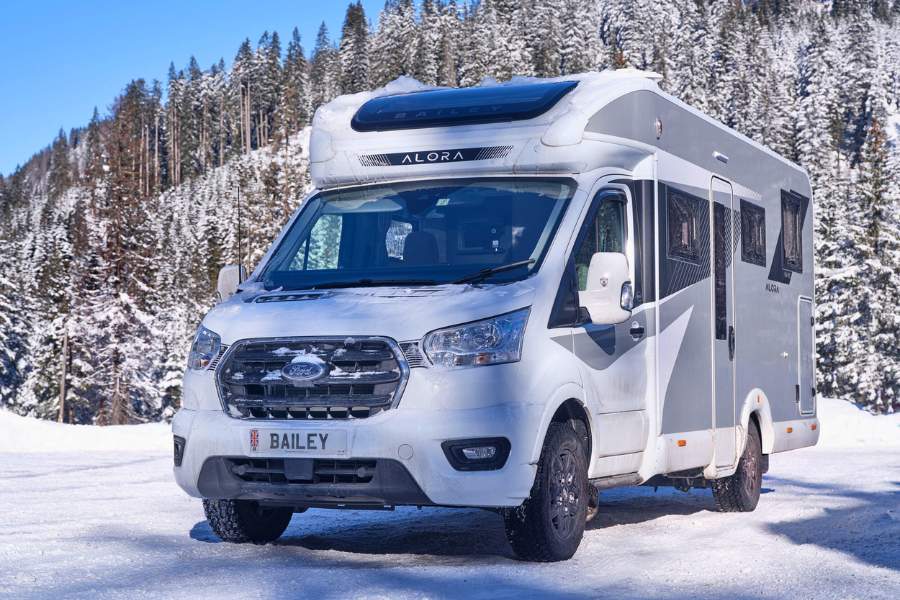
The first consideration is ensuring your fuel sources are up to the task.
Gas
You may be surprised by how much gas is used while off-grid. Gas isn’t just for cooking; it’s also used to create hot water, provide heating, and keep the fridge cool.
For reference, during our Easter weekend trip a couple of years ago, we started with 4.4 kg of propane and ended with 0.6 kg. To put this into context, this covered all our cooking, hot water for at least two showers per day, keeping the fridge running constantly for five days, and some evening heating.
We’ve previously run out of gas while off-grid – on a bank holiday weekend, no less – and it wasn’t fun when we couldn’t get another gas bottle and were gasping for a cup of tea! For this reason, we now carry a small foldable cooker and a C500 gas bottle. These bottles are lightweight and ideal for use with the Cadac, and it’s easy to store at least one as a backup. This way, you have a temporary solution for boiling water or cooking food if you run out of gas.
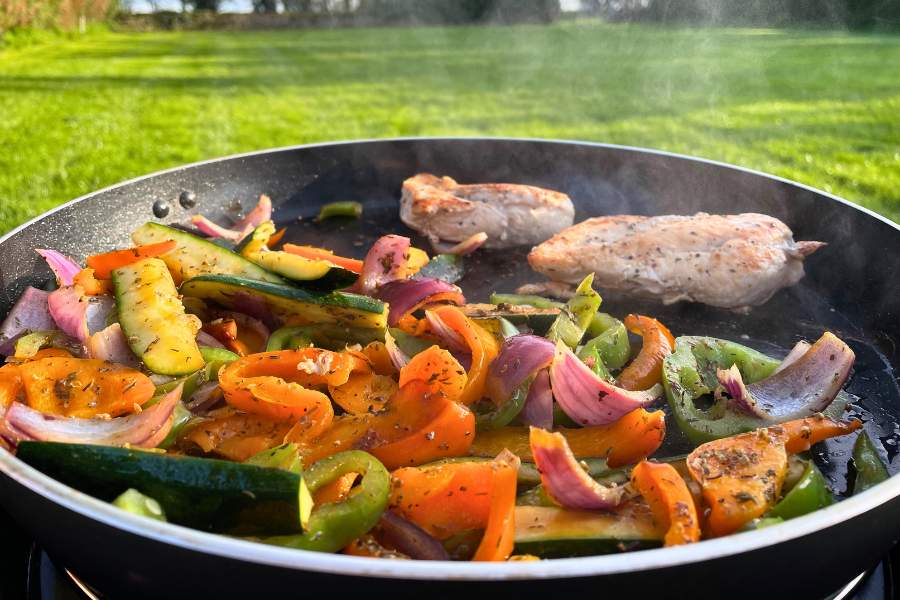
Leisure Battery
The other essential power source is your leisure battery. You’ll need a way to replenish the energy you use, ideally with a solar panel. Whether you use a roof-mounted panel or a portable suitcase-style panel, either option will help recharge your battery – weather permitting. A 100W panel is ideal for sunny days, but on cloudy days, it can be more challenging (I’ll discuss this further later).
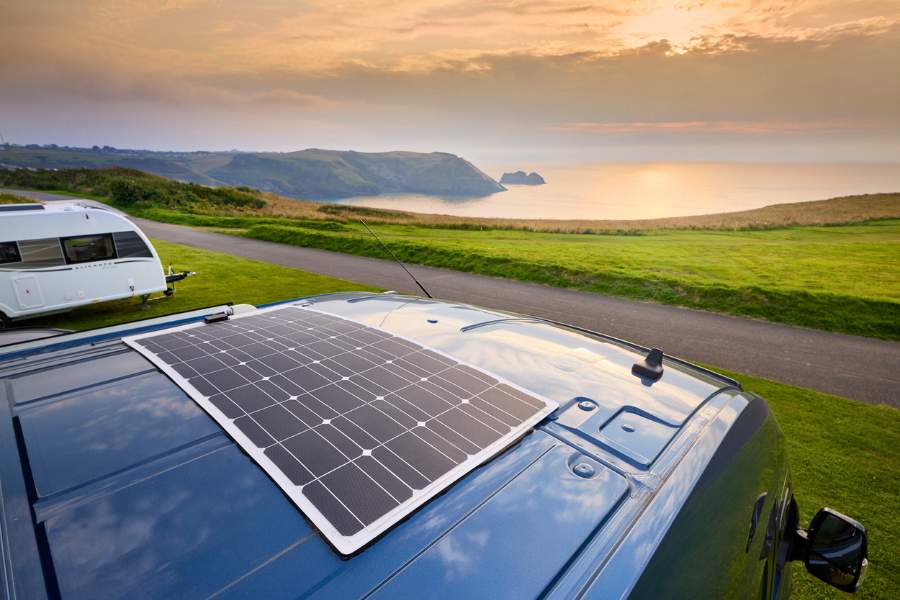
A good tip is to ensure your battery is in good condition and fully charged before setting off.
Packing Essentials
Our off-grid packing list focuses on preserving power as much as possible. Reducing the fridge’s temperature, minimising heating needs, and packing efficiently all make a big difference.
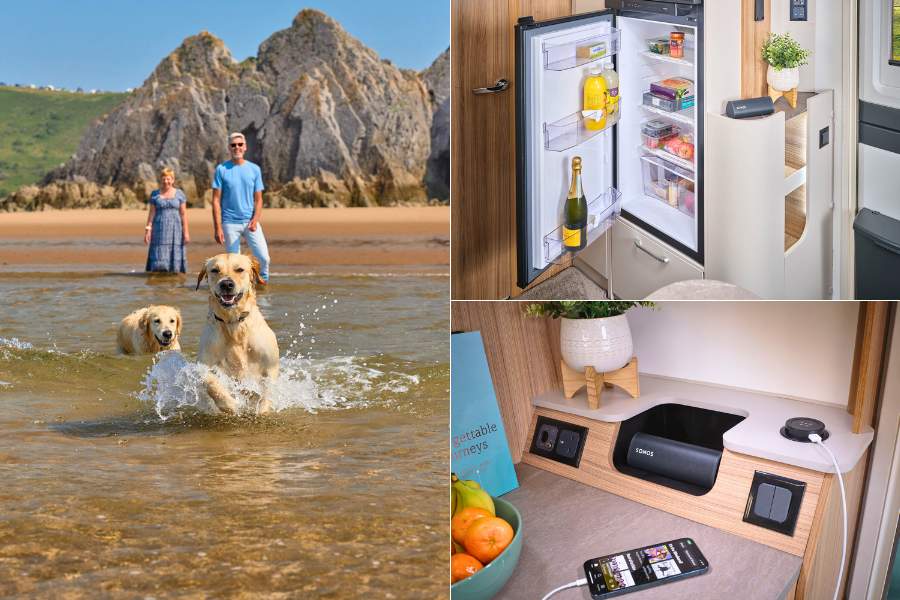
We pack items like blankets and suitable clothing for a range of temperatures. Even in summer, evenings can get chilly, especially after a day in the sun. Pre-chilling freezer blocks before your trip help the fridge cool down faster, increase storage space, and keep your food fresh.
Other handy items include a 12V USB plug for charging mobile devices (which can also be charged in the car) and portable power stations for devices requiring mains voltage. These stations can charge smaller items and provide a 230V outlet of up to 1kW.
Additionally, off-grid locations are often rural, so don’t forget:
- Bug spray for summer evenings
- Tick removal tools if you’re travelling with a pet
- A good torch for evenings
- Levelling tools for uneven pitches
12V Equipment
Consider investing in equipment or accessories that run on 12V. For example, we use a 12V Avtex TV and a splitter to connect both the TV and soundbar. This setup uses remarkably little power – less than the car radio installed in the caravan!
On-Site Setup
Once you’ve arrived and settled in, keep a few things in mind for off-grid living:
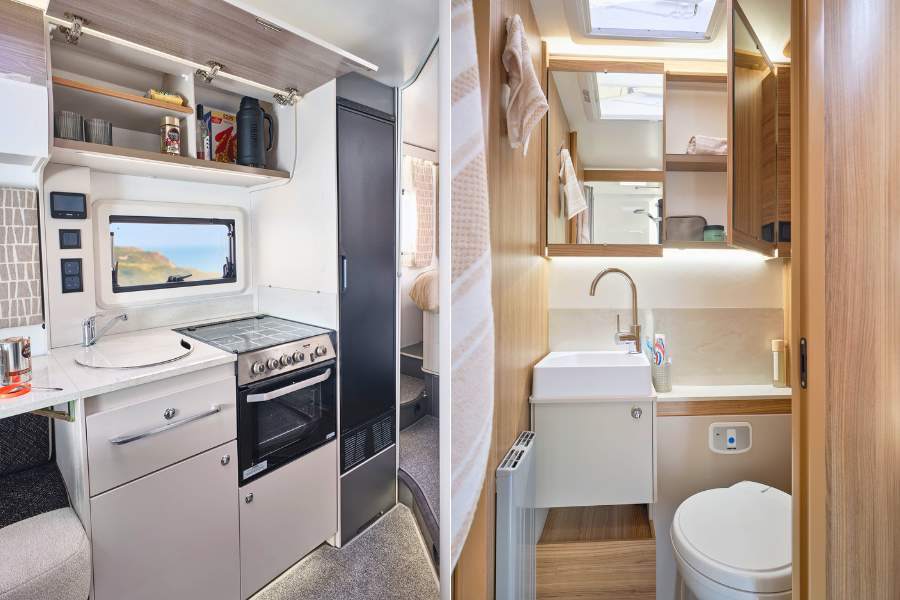
- Kitchen: The gas cooker will work as usual, but any electric hot plates won’t function without mains power. Run the fridge on gas and turn it down to about halfway - it will be colder than when running on electric. Pre-chilled freezer blocks can help with initial cooling.
- Toilet: Many rural certified locations use soak-away toilet disposal points, so avoid traditional blue toilet chemicals. Instead, opt for green chemicals, like Thetford or 40-shot green chemicals, which work well and are more eco-friendly.
- Heating and Hot Water: Use timers to maximise efficiency. For example, during chilly March evenings, we set our heating to 17°C and turned it off at 11:00 PM. In the morning, we boosted the hot water for just an hour, which was enough for two showers.
For tasks like washing up, boil a bit of extra water in the kettle – it’s faster and uses less water than heating the full tank.
During Your Holiday
During your trip, you’ll likely keep an eye on the battery voltage. Don’t panic if it drops; just unplug or switch off unnecessary power-consuming items.
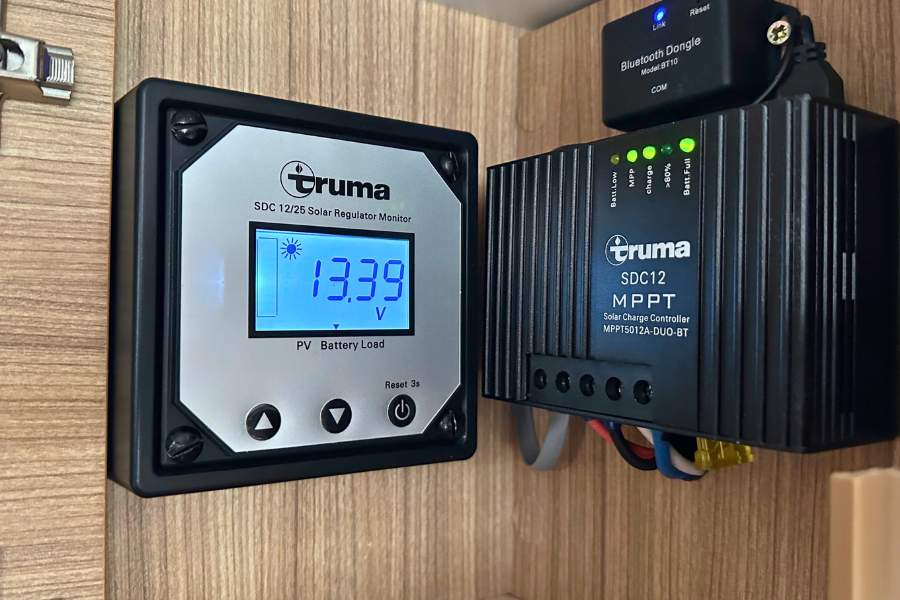
For example, even in standby mode, the TV consumes a small amount of power, so unplug it when not in use. Lights are another major power drain, so limit evening lighting. You might find it relaxing to watch a film with minimal or no lights.
Still Unsure?
If you’re hesitant about going fully off-grid, consider a compromise. Caravan and Motorhome Club and Camping and Caravanning Club both offer non-electric pitches, which are more affordable but still provide access to site facilities like showers, toilets, and washing areas. This setup allows you to test the waters and ease into the off-grid experience.
What If It Goes Wrong?
If something does go wrong, the worst-case scenario is likely to run out of power. Running out of gas is easy to resolve by purchasing more, but a flat leisure battery can be trickier.
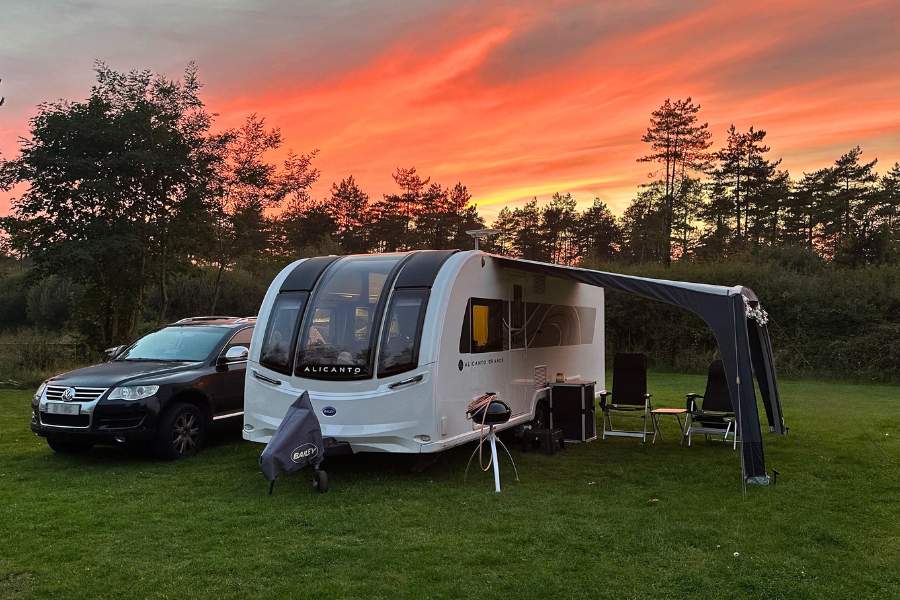
Some off-grid sites offer 12V charging options, such as trickle charging in a barn or the site owner’s home, so it’s worth asking.
In all our years of off-grid camping, we’ve only come close to a flat battery once – after accidentally leaving the awning light on overnight. By morning, the battery was below 12V. However, by switching off the master switch and allowing the solar panel to recharge the battery, we were back to normal the next day.
Conclusion
These are just a few tips and ideas to consider when going off-grid. As I mentioned earlier, the more you do it, the easier it gets. Once you realise that your caravan is already designed for off-grid use, the experience becomes much less intimidating. So, pack your essentials, embrace the adventure, and enjoy the freedom of off-grid camping!
Latest news & events
See all news & eventsWest Country Motorhomes Open Weekend
BRISTOL ROAD, BRENT KNOLL, HIGHBRIDGE, SOMERSET
Swindon, Oxford and Reading Caravan and Motorhome Centre Easter Sales Event
GREATFIELD, ROYAL WOOTTON BASSETT, WILTSHIRE
Grantham's Midlands Caravan & Motorhome Season Ready Show
SPITTLEGATE LEVEL
GRANTHAM
